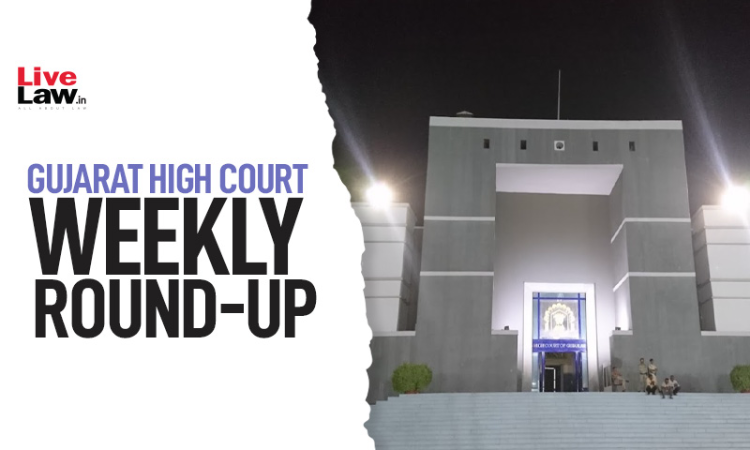Gujarat High Court Weekly Round Up: September 5 To September 11, 2022
Sparsh Upadhyay
25 Sept 2022 10:00 PM IST

Next Story
25 Sept 2022 10:00 PM IST
NOMINAL INDEX Gulamhusen Dadamiya Pir Versus Union Of India 2022 LiveLaw (Guj) 368Patel Rameshchandra Mangaldas V/S State Of Gujarat 2022 LiveLaw (Guj) 369 Vithal Bogra Shetty V/S Board Of Trustees 2022 LiveLaw (Guj) 370 State Of Gujarat V/S Rajeshbhai Ramubhai Patel & 5 other(s) 2022 LiveLaw (Guj) 371 Sharda Chimanbhai Lalbhai V/S Dinesh Mohanbhai Prajapati 2022 LiveLaw...
